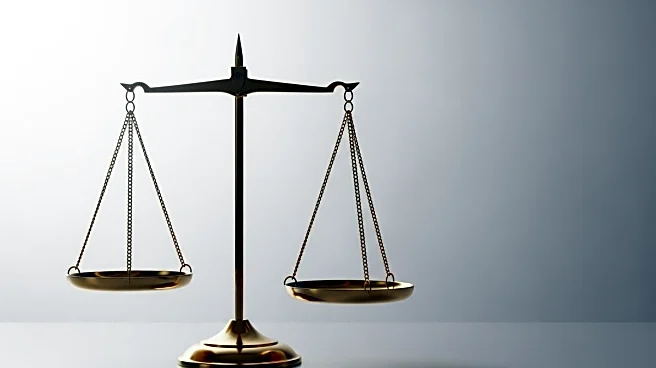What is the story about?
What's Happening?
Samantha Markle, the estranged half-sister of Meghan Markle, has encountered a significant obstacle in her ongoing legal battle against the Duchess of Sussex. Samantha had filed a lawsuit in federal court in Florida, accusing Meghan of making false and malicious statements during a televised interview with Oprah Winfrey. The lawsuit, initially dismissed by a federal judge, was brought before the 11th Circuit Court of Appeals in Jacksonville. However, the panel of judges expressed skepticism about the appeal, questioning whether it adequately addressed the original ruling. Chief US Circuit Judge William Pryor highlighted deficiencies in the appeal, suggesting that Samantha's legal arguments were insufficient. Samantha's legal team contends that Meghan's remarks amounted to defamation by implication, damaging her reputation and causing her to receive death threats.
Why It's Important?
The legal dispute between Samantha Markle and Meghan Markle underscores the complexities of defamation law, particularly when it involves public figures and family dynamics. The case highlights the challenges in proving defamation by implication, where statements may not be explicitly false but are alleged to have damaging implications. The outcome of this case could set a precedent for similar defamation claims, impacting how public figures navigate their personal narratives in media interviews. Additionally, the case reflects broader societal issues regarding privacy, reputation, and the legal protections afforded to individuals against perceived slander.
What's Next?
While the judges have not yet issued a verdict on the appeal, their comments suggest that Samantha Markle's legal position is precarious. If the appeal is unsuccessful, Samantha may face limited options for further legal recourse. The case may prompt discussions among legal experts and public figures about the boundaries of free speech and defamation, especially in the context of family disputes aired publicly. Meghan Markle's legal team is likely to continue defending her right to express opinions under the First Amendment, potentially influencing future legal strategies in similar cases.















